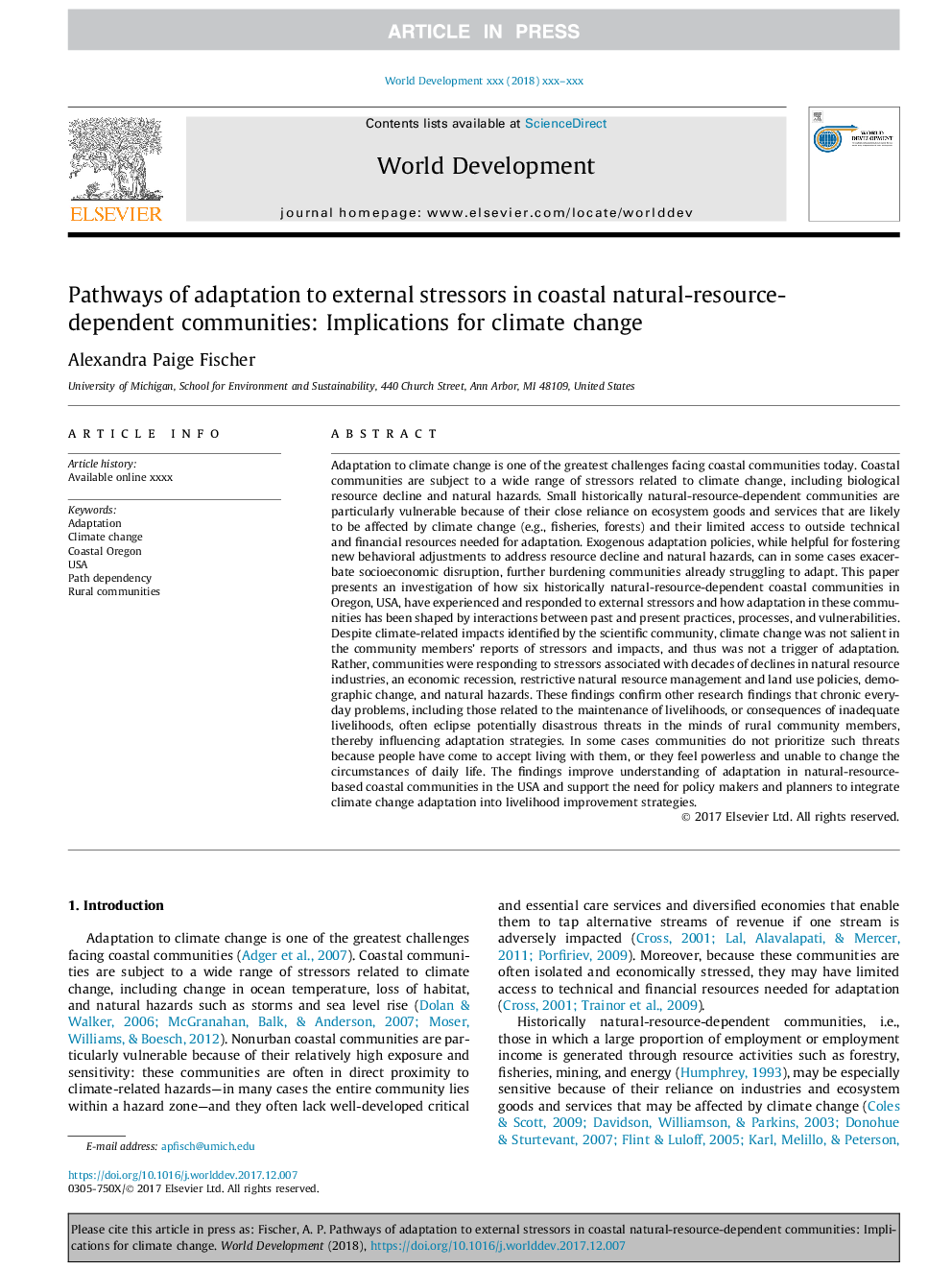ترجمه فارسی عنوان مقاله
مسیرهای سازگاری با استرس های خارجی در جوامع وابسته به منابع طبیعی ساحلی: پیامدهای تغییرات اقلیمی
عنوان انگلیسی
Pathways of adaptation to external stressors in coastal natural-resource-dependent communities: Implications for climate change
| کد مقاله | سال انتشار | تعداد صفحات مقاله انگلیسی |
|---|---|---|
| 95219 | 2018 | 14 صفحه PDF |
منبع

Publisher : Elsevier - Science Direct (الزویر - ساینس دایرکت)
Journal : World Development, Available online 3 January 2018
ترجمه کلمات کلیدی
انطباق، تغییر آب و هوا، اورگان منطقه ساحلی، ایالات متحده آمریکا، وابستگی به مسیر، جوامع روستایی،
کلمات کلیدی انگلیسی
Adaptation; Climate change; Coastal Oregon; USA; Path dependency; Rural communities;

